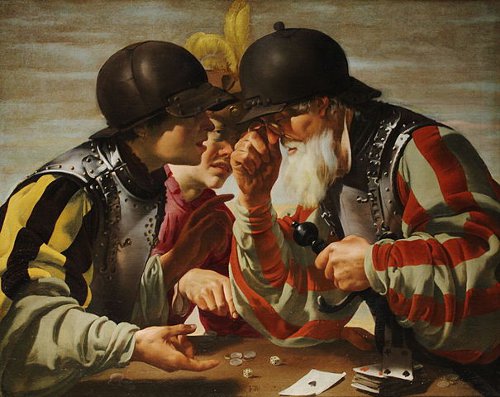
If we roll a fair die an infinite number of times, the outcome 4 occurs in 1/6 of the cases. In this light we can say that the probability of rolling a 4 with this die is 1/6. But suppose that, instead of repeating the experiment forever, we roll the die only once. Now it still seems natural to say that there’s a 1/6 chance of rolling a 4, but in fact either we’ll roll a 4 … or we won’t. Can it make sense to assign a probability to a single outcome? Charles Sanders Peirce writes:
If a man had to choose between drawing a card from a pack containing twenty-five red cards and a black one, or from a pack containing twenty-five black cards and a red one, and if the drawing of a red card were destined to transport him to eternal felicity, and that of a black one to consign him to everlasting woe, it would be folly to deny that he ought to prefer the pack containing the larger proportion of red cards, although, from the nature of the risk, it could not be repeated. It is not easy to reconcile this with our analysis of the conception of chance. But suppose he should choose the red pack, and should draw the wrong card, what consolation would he have? He might say that he had acted in accordance with reason, but that would only show that his reason was absolutely worthless. And if he should choose the right card, how could he regard it as anything but a happy accident? He could not say that if he had drawn from the other pack, he might have drawn the wrong one, because an hypothetical proposition such as, ‘if A, then B,’ means nothing with reference to a single case.
Peirce’s solution to this problem is curiously humanistic. Our inferences must extend to include the interests of all races in all epochs. A soldier storms a fort knowing that he may die but that his zeal, if carried through the regiment, will win the day. The man trying to draw a red card “cannot be logical so long as he is concerned only with his own fate” but “should care equally for what was to happen in all possible cases … and would draw from the pack with the most red cards.”
“He who would not sacrifice his own soul to save the whole world, is, as it seems to me, illogical in all his inferences, collectively.”
